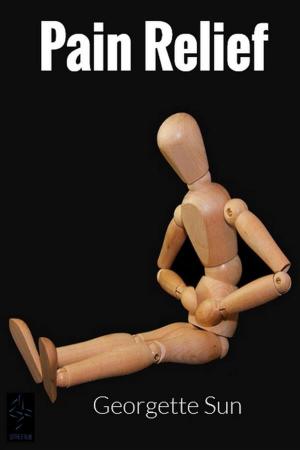| Author: | Georgette Sun | ISBN: | 9788826447742 |
| Publisher: | Georgette Sun | Publication: | June 4, 2017 |
| Imprint: | Language: | English |
| Author: | Georgette Sun |
| ISBN: | 9788826447742 |
| Publisher: | Georgette Sun |
| Publication: | June 4, 2017 |
| Imprint: | |
| Language: | English |
All breeds of dogs are prone to an array of health problems, and so too with Chow Chows. Of them, hip dysplasia, luxating patella and entropion are the commonest. But the chances of your pup not being dysplastic or having a mild problem with it are minimized if you buy him from a registered breeder who Xrays the hips of animals and examines them for dysplasia before they can be bred. But on the whole, we now know that about 50 percent of all Chows suffer from hip dysplasia.
This is caused due to a malformed hip joint that results in the head of the femur bone not fitting perfectly into the hip socket in which the
femoral head lies. Often, it leads to pain, lameness and arthritis. However, the good news is that this condition, though congenital, can be treated by surgery.
Again being congenital, a dysplastic dog will often and invariably produce dysplastic puppies. Therefore, to ensure you’re taking home a healthy pup, it is imperative you ask to see the sire and the dam, and inquire if they are diagnosed
with this condition. If not, ask to see a certificate granted by the Orthopedic Foundation for Animals or by Penn HIP, stating this.
Do not believe what you hear, but wait to see the certificate proving they are healthy and clear of this condition. Ask for a copy of the same so you can show it to your vet. Also, ask him if he will guarantee a puppy against hip dysplasia for at
least two years.
All breeds of dogs are prone to an array of health problems, and so too with Chow Chows. Of them, hip dysplasia, luxating patella and entropion are the commonest. But the chances of your pup not being dysplastic or having a mild problem with it are minimized if you buy him from a registered breeder who Xrays the hips of animals and examines them for dysplasia before they can be bred. But on the whole, we now know that about 50 percent of all Chows suffer from hip dysplasia.
This is caused due to a malformed hip joint that results in the head of the femur bone not fitting perfectly into the hip socket in which the
femoral head lies. Often, it leads to pain, lameness and arthritis. However, the good news is that this condition, though congenital, can be treated by surgery.
Again being congenital, a dysplastic dog will often and invariably produce dysplastic puppies. Therefore, to ensure you’re taking home a healthy pup, it is imperative you ask to see the sire and the dam, and inquire if they are diagnosed
with this condition. If not, ask to see a certificate granted by the Orthopedic Foundation for Animals or by Penn HIP, stating this.
Do not believe what you hear, but wait to see the certificate proving they are healthy and clear of this condition. Ask for a copy of the same so you can show it to your vet. Also, ask him if he will guarantee a puppy against hip dysplasia for at
least two years.















